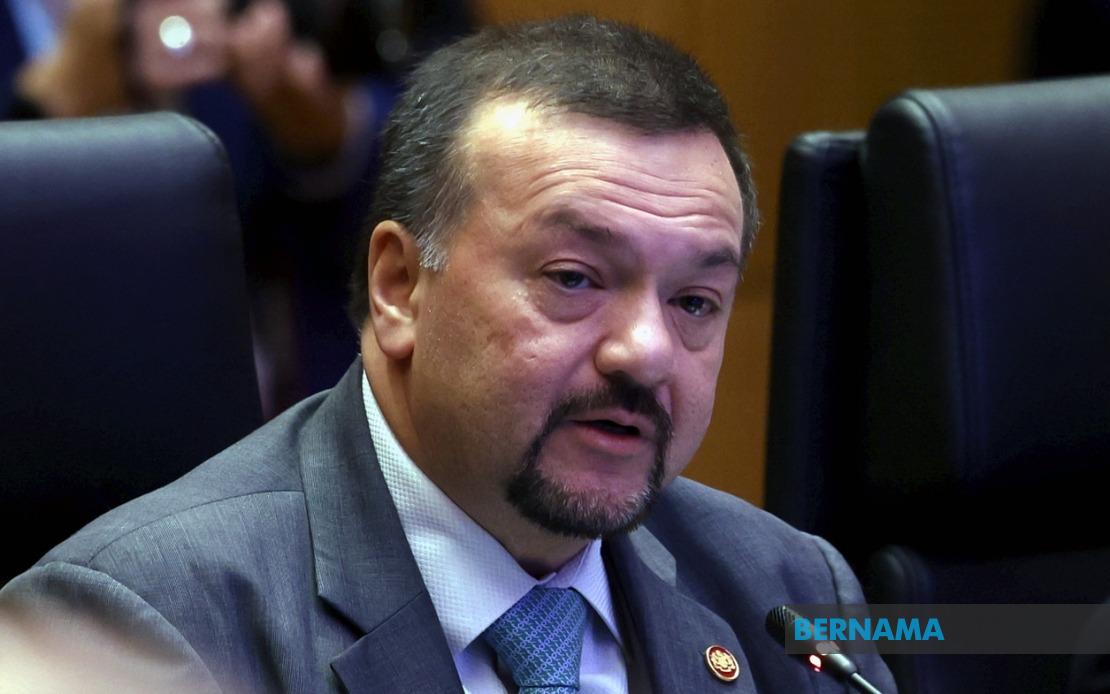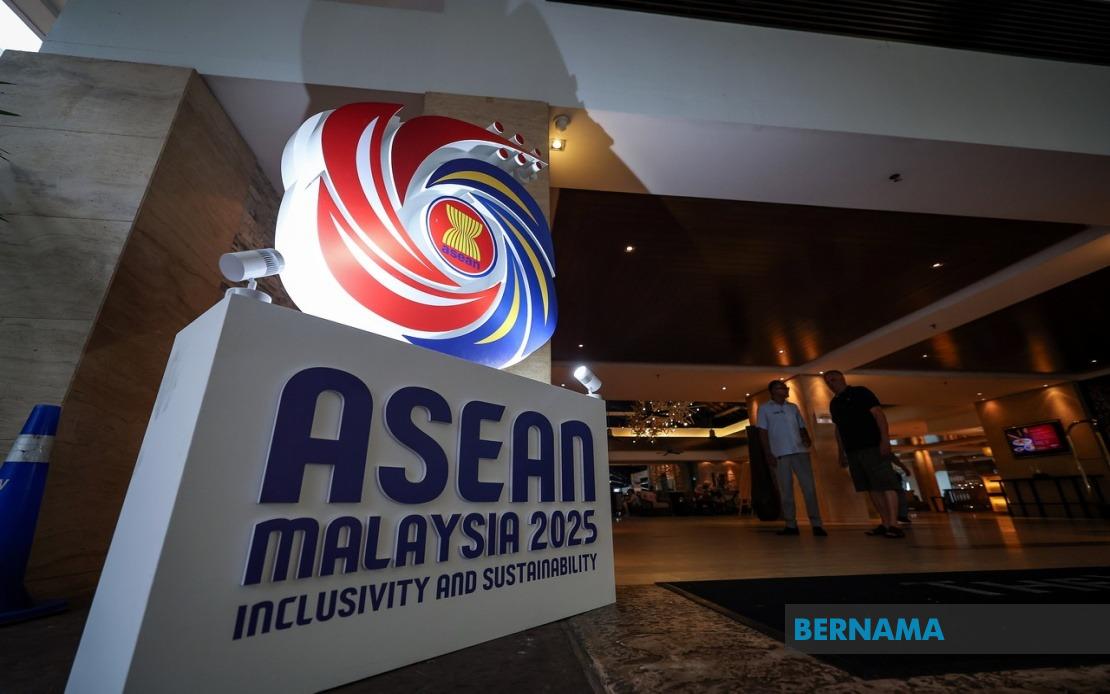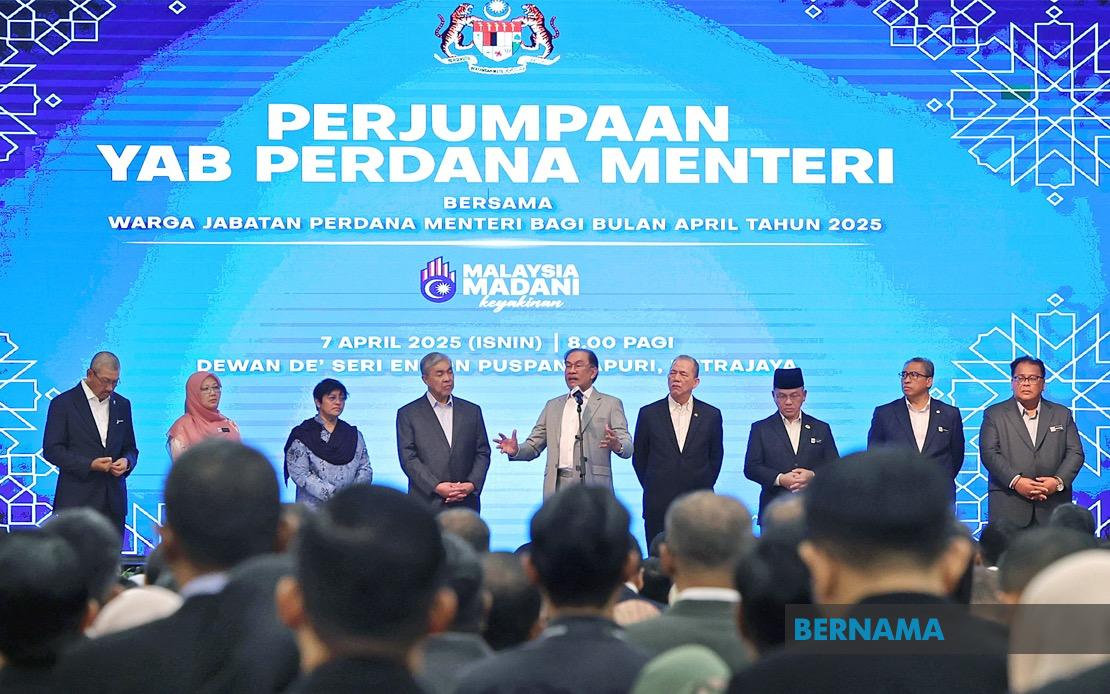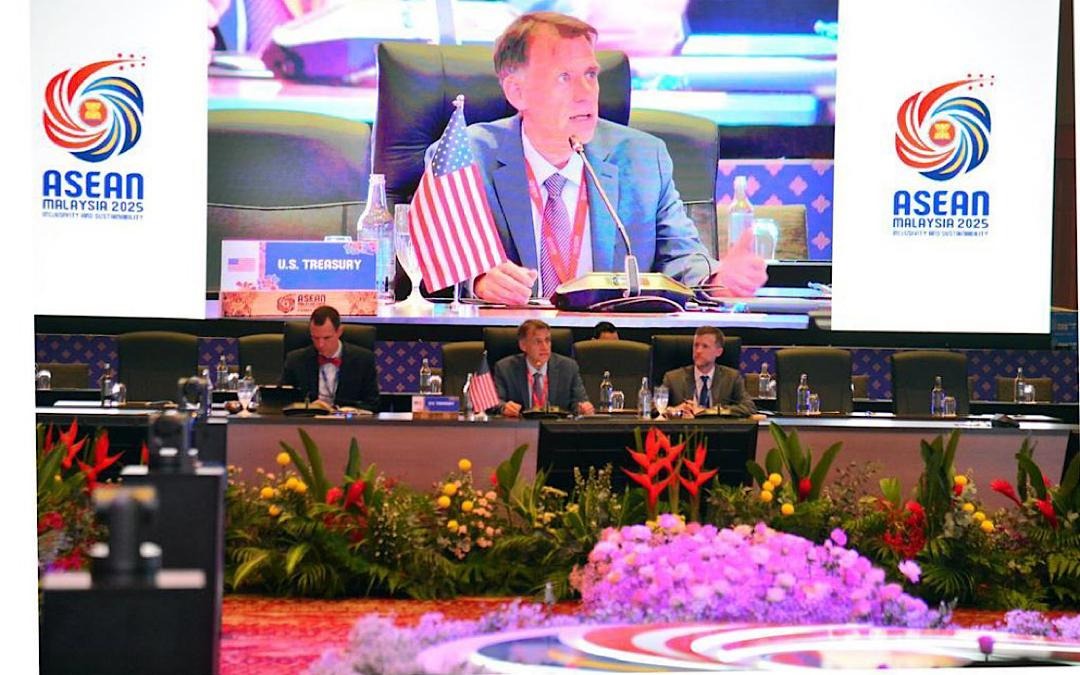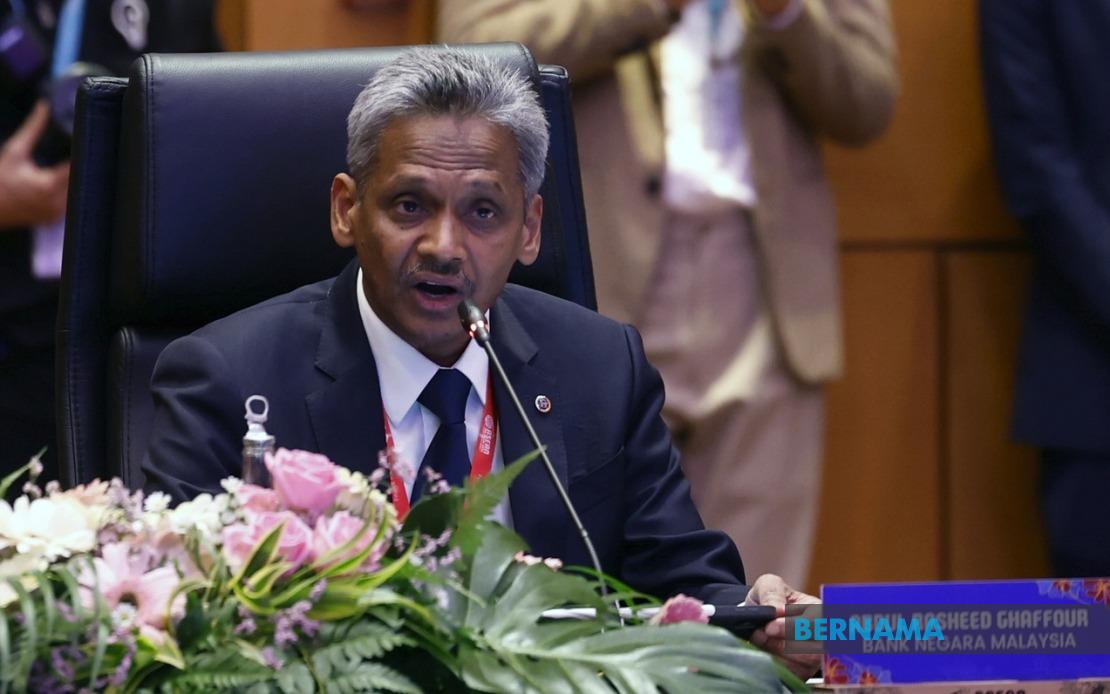ANWAR’S CALL FOR NO RETALIATORY TARIFF A WISE MOVE -- RAIS HUSSIN

KUALA LUMPUR, April 7 (Bernama) -- Prime Minister Datuk Seri Anwar Ibrahim’s call for no retaliatory tariff following the United States (US) new tariff hike may prove as a wiser move, said EMIR Research founder Datuk Dr Rais Hussin.
He said Malaysia’s response reflects a strategic maturity with focus on preserving investor confidence, safeguarding sovereign policy space, and accelerating economic transformation.
“The future of the global economy especially for middle powers like Malaysia depends on our ability to withstand such disruptions.
“The answer isn’t impulsive reaction, but strategic resilience, diversified alliances, and assertive sovereign agency,” he said in a statement today.
On April 2, 2025, US President Donald Trump announced a series of new tariffs that impacted many countries, including Malaysia at 24 per cent.
Yesterday, Anwar gave an assurance that Malaysia would not slip into a recession for now following the imposition of tariffs by the US, as the country's economy remains resilient.
He reiterated that Malaysia would not introduce retaliatory tariffs.
Rais said that for countries with limited capacity for import substitution (underdeveloped industrial bases) or undiversified supply chains, escalating a tariff war would only amplify domestic vulnerabilities.
“While it may be tempting to retaliate with matching tariffs, doing so could prove self-defeating. Trade barriers harm not just those they target, but also those who erect them,” he said.
He said Malaysia is reportedly under scrutiny for policies related to halal certification, digital regulation, and preferential treatment for local firms.
“Yet many of these measures are sovereign decisions rooted in national values and development goals - they must not be traded away under duress!” he highlighted.
Rais opined that instead of overreacting, countries caught in the crossfire should pursue advance strategic import substitution but not through tariffs.
Besides, Malaysia should accelerate supply chain diversification and deepen multilateral trade ties and South-South cooperation.
“Malaysia and ASEAN should strengthen engagement with Regional Comprehensive Economic Partnership (RCEP), Comprehensive and Progressive Agreement for Trans-Pacific Partnership (CPTPP), and key trading blocs like the European Union (EU) and Gulf Cooperation Council (GCC)
“Expanding into African, Latin American, and Middle Eastern markets is equally essential. Malaysia’s proactive entry into the expanded BRICS framework also opens promising new corridors for trade, investment, and knowledge exchange,” he said.
He said Asia’s major economies have already begun charting their counterstrategy, with China, Japan and South Korea deepening trilateral ties, including joint investment in semiconductor supply chains.
“These are long-term resilience strategies not just reactions. Malaysia and ASEAN must act decisively to keep pace,” he said.
-- BERNAMA
